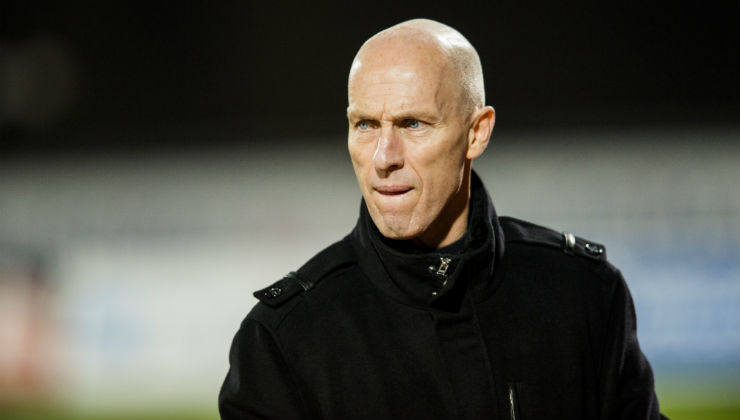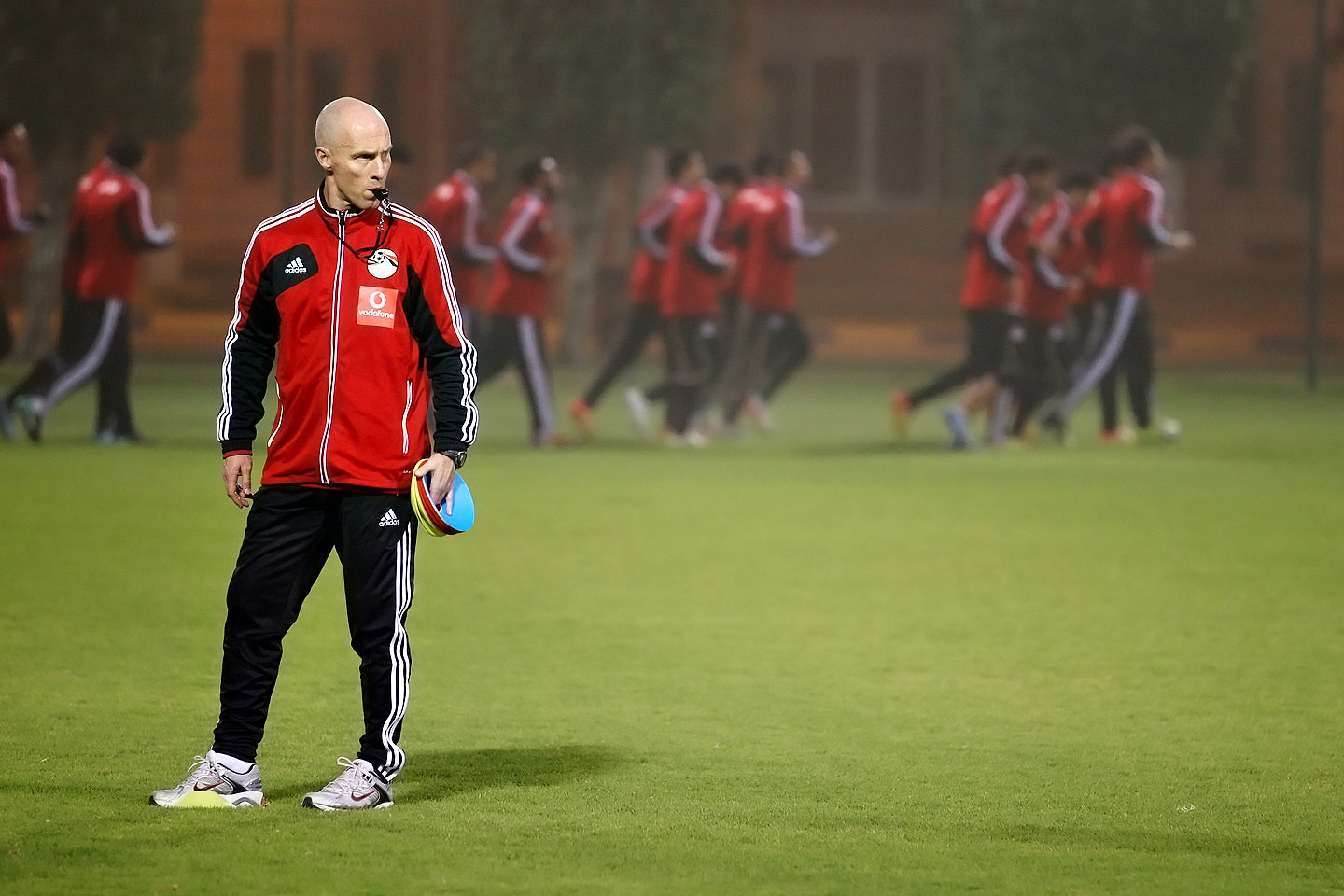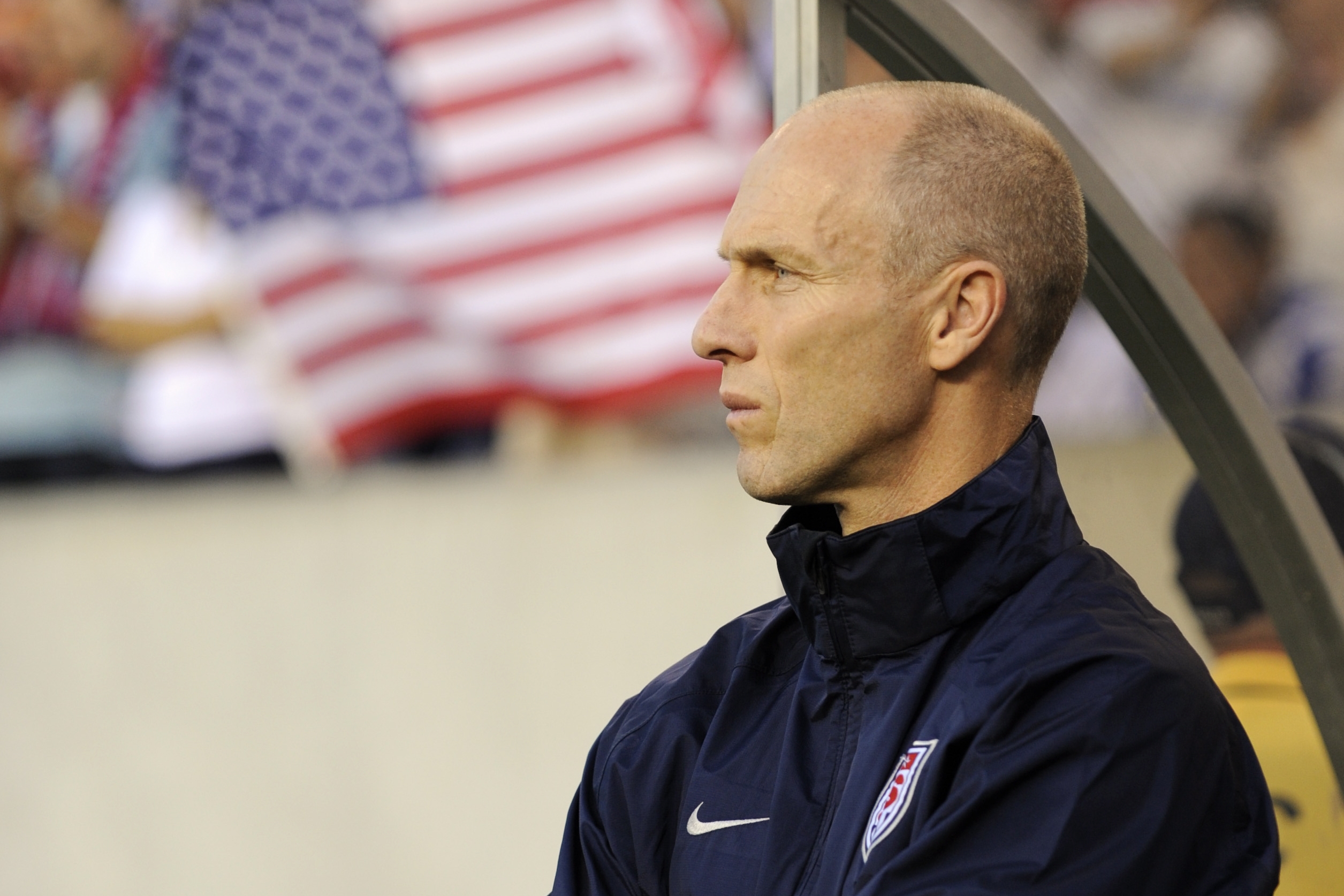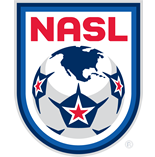Q&A With Le Havre Coach Bob Bradley

Bob Bradley has had success as a coach at every stop in his career – from college, to MLS, to the U.S. senior men’s national team, to the national team of Egypt, to Norway and now with Le Havre in France. The Princeton graduate and New Jersey native spoke with Jack Bell of NASL.com as he tries to lead The Sky and Navy Blues, the Normandy club’s nickname, to promotion from France’s Ligue 2 to Ligue 1.
Bell: Le Havre is currently fighting for promotion. Are you pleased with how things have been going since you became the club’s manager last November?
Bradley: From experience you have to know when to step into a different situation. There are always a lot of things that need attention when you arrive. Especially when you’re doing it in middle of the season and don’t have a full preseason to establish your ideas. I would say that we’re making progress. There are always two parts to consider when you’re getting started.
There’s one part of just trying to establish a winning environment and culture and make sure that there’s a group identity, some sense of purpose and mission about what we’re trying to do. That’s all on the team-building side. Then there’s the pure football part, just trying to get at all the little things that we need to work on to become better.
Clearly, I think from the team side we’ve made progress. I think we’ve gotten some good results and there’s growing confidence. The football part is going in a good direction. It’s still not as consistent over 90 minutes as I’d like, but I see things moving in the right way. Then again, I also see things that we need to work on every day.
Bell: What has been your biggest challenge at Le Havre so far?
Bradley: That I don’t have the time that I want to get to know each player, to assess where they are, to introduce ideas little by little. You’ve got to fit in the work with the schedule. When I first arrived we had a lot of games. You just don’t have the normal preseason to start to build a foundation. You have to pick up from where things were, and try doing things little by little to add to the whole thing and find ways to make it better. You just can’t come in from Day 1 and start changing everything. You have to go step by step to move in a good direction.
Bell: So much has been said, and written about you, as an American coach in Europe. Is too much made of this?
Bradley: First of all, I would say this idea about American soccer, players, and coaches and there might be something to it, but quite frankly a lot of it is still driven through probably the media. The media over here doesn’t pay much attention to what goes on in the United States. The fans have never spent time watching games from the U.S. And in clubs all around the world, not all the decision makers are tuned in to what’s going on in the U.S.
The players are going to know what you’ve done before you arrive. I come in here and my experiences, the results, the different guys I’ve coached – all those things mean that players here see everything I’ve done. They see that they’re getting someone with a great deal of experience.
Then the most important part is when you go to work. You earn respect by the way you do things every day. The first time you speak to the team, how you handle what you say, how much you say, the message, putting together training sessions, how you pick a lineup. The most important part is the work you do every day. The players can see when you’ve done that at a high level.
Bell: You’re now at your third stop after leaving the U.S. to coach abroad. From Egypt to Norway and now France, have you detected differences in how the game is played, the players, or anything else?
Bradley: One of the things you do every time in a new situation is you go in with an open mind, to listen and observe. You always have ideas about how things should be done, but you have to figure out how things work, how they do things. That you have to go in and figure out. Every place I go I get asked: ‘Egypt, how different was that from the U.S.? Norway, how different was that from the U.S.?’ I come here and people want to know how different it is from the U.S. You can always find differences, but there are also some similarities within a team. You have some players who understand at a high level, they are professional. They like to be challenged. Then you have others, at different levels. One of the most important things is how you assess players. It’s import to let guys know that as you try to build the team you want to make everyone better if you want to be successful. I tell my players that as I get to know you I’m going to challenge you. It’s not only about how to make a good team, it’s about how do we all push forward together.
I think players appreciate being pushed, though not all of them are used to being challenged. But you don’t make them better by telling them what they want to hear. There are differences in cultures but you find a way to connect with people and show you care. When you finish in one place and move on there are guys you hear from. That’s happened with many of my Egyptian players and so many different guys from Norway. When you help a guy at any point in his career players appreciate that. When Neny [Mohamed Elneny] went to Arsenal I was excited for him. I always heard from a number of different players still in Egypt. [Adama] Diomandé goes from Norway to Minsk, then comes back to Norway, has a great first two-thirds of the season and ends up at Hull. When you have a good working relationship with players and they make progress the guys appreciate it.

Bell: During your time in MLS, in particular, you were known as a guy with a great eye for young talent. When I look back on just the guys you drafted when you were at the MetroStars/Red Bulls it’s impressive how many went on to solid careers, certainly Michael (Bob Bradley’s son), Ricardo Clark, Eddie Gaven, Brad Davis, Mike Magee, Jeff Parke. Solid careers all.
Bradley: I like to think I have an eye for young talent and players who I think can grow and become good players. Over the years I’ve been fortunate and had a lot of guys who have moved on and done well, that’s something you always feel good about. When I was in Chicago we brought young players into an environment where they would learn and get better. (Bradley led the expansion Fire to the MLS and U.S. Open Cup titles in 1998.)
Some moved up to the national team and went on to Europe. Honestly it’s a pretty good list over the years, but it’s not something that I need to tweet about.
Bell: You’ve coached both club teams and national teams. Which do you prefer?
Bradley: I’m like a lot of other guys, I enjoy the day-to-day part of working in a club to create an environment and to try to create a winning culture. I think I have a feel for how to move young players into a team and push them forward. But the opportunity to coach your own national team is special when that comes along. For me, even with a different type of schedule, I still tried to go about things the same way. Creating a good environment when the players came into camp and give some real sense of what it’s all about.
Bell: Do you think people expect too much from the U.S. team?
Bradley: I don’t know what that means. For me, every day I was the national team coach my thought process was how to become a better team. When you start a cycle it’s about how to qualify [for the World Cup]. When you get there it’s about how can we get out of group. I don’t know what anyone talks about or expects. I tried to make it something that was special so guys were excited to be in camp. I always believed that if you go about it the right way, maybe you can do something special.

Bell: Is playing in Europe the be-all and end-all for American players?
Bradley: When I’ve been asked these questions by players, I’ve counseled honestly and said that it’s different for everyone at different stages of your career. There are definitely good and bad situations. I don’t think you can say there is one answer for everyone.
Bell: How do you deal with an environment where you might be one game from losing your job? Where the pressure to win and be successful is so extreme as it is in European soccer?
Bradley: You have to believe in your work. There is a part of the job where you have to understand that you can walk in any day and get fired. The only thing the contract means is that the agent and lawyers get to figure out if the club owes you money. When you come to grips with that, you get to a point that it just doesn’t bother you at all, that you go in every day and focus on that team and how to make better, and create a good environment. If you’ve been through that you have confidence and know you can handle any situation. That doesn’t go away.
What really matters is if you’ve lost some games in a row and if all of a sudden people are screaming for your head and the media is screaming for your head is that every day you have to stand in front of your team. What do you say? What’s your body language? If you look scared you’re finished. No one said it would be easy. If you believe in your ability you just have to let the rest fall where it may. You have to let go and say that’s their problem and move one.
Bell: What has been your biggest thrill since leaving the U.S.?
Bradley: It was a thrill for me to work with the incredible group of players in Egypt at a time when there was so much going on in their country. The league stopped and the players were not getting paid. We found a way in every camp to talk about being united and showing people what could happen if all worked together. The experience in those situations and seeing what an incredible mentality they had was amazing. I’m still hearing from so many of those guys, even with the disappointment of coming so close and not getting there [the World Cup]. That experience will always be something I’m very proud of.


